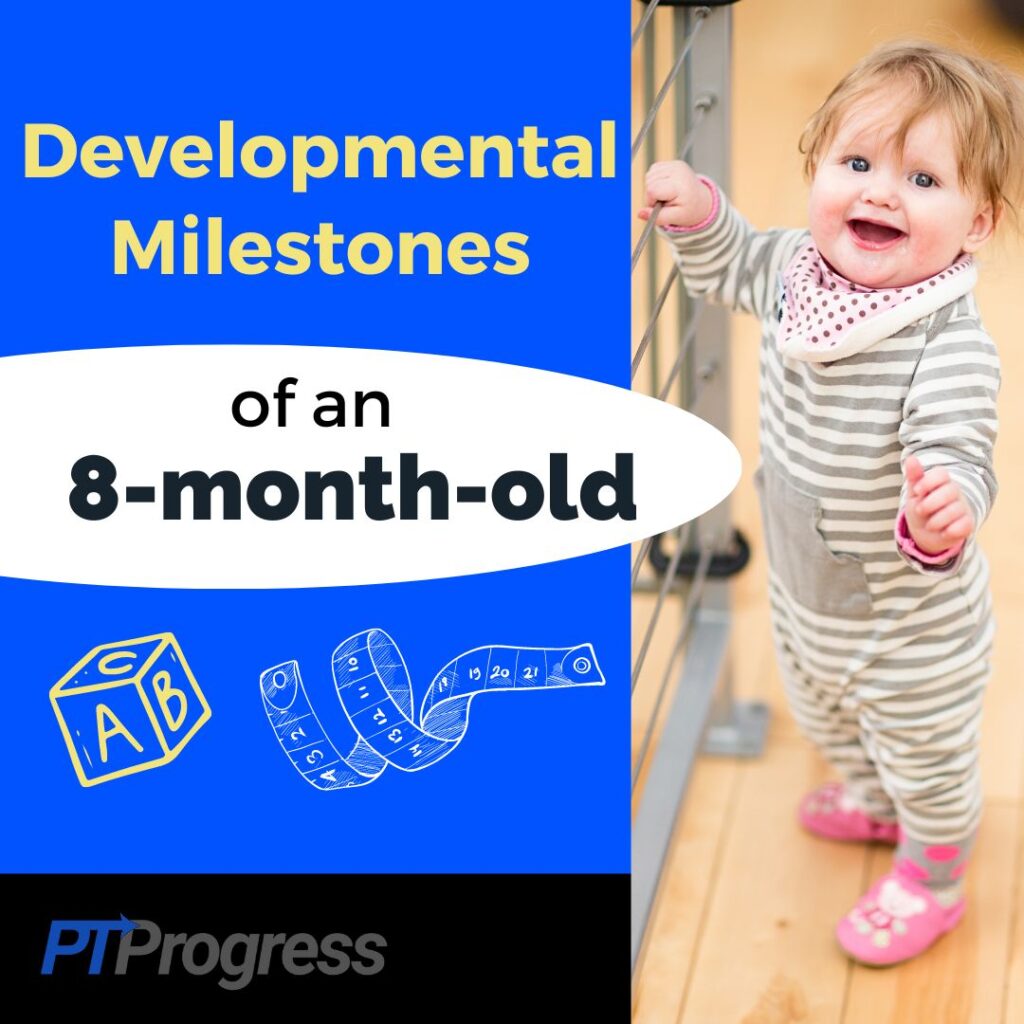
The eighth month of your baby’s life will feature some important development milestones, from crawling and kneeling to possibly pulling up to stand. You will have your hands full!
Your baby will also be developing new cognitive skills, such as understanding object permanence, and may be attempting to communicate their needs—successfully or not! You may also see your baby begin to prefer simple household items over their actual toys (good thing you bought so many, right?).
At this point in their development, there should be no new reflexes to watch for. Mind your baby’s existing reflexes, discussed in previous guides, as they integrate or disappear. Keep reading below for more in-depth information about 8-month-old developmental milestones!
8-month-old Developmental Milestones
Reflexes
Reflexes help babies prepare for complex movement. As your baby grows, these movements will become less of a reflex and integrate into natural movement. At the 8-month-mark, no new reflexes should be making an appearance, but every child develops at different rates; the reflexes mentioned in previous reports may be relevant for your child at this time.
These include any of the following: the Palmar Grasp reflex, Asymmetrical Tonic Neck Reflex (ATNR), Spinal Galant reflex, and Spinal Perez reflex, all discussed in further detail in the 5-month developmental milestones report; and the Symmetrical Tonic Neck Reflex (STNR), discussed in the 6-month developmental milestones report.
Each report outlines the “normal” schedule for the appearance and disappearance of these reflexes. But if you ever have questions about the rate of your child’s development, consult your child’s pediatrician. They can refer your baby to an occupational therapist trained in reflex integration, if needed.
Mobility
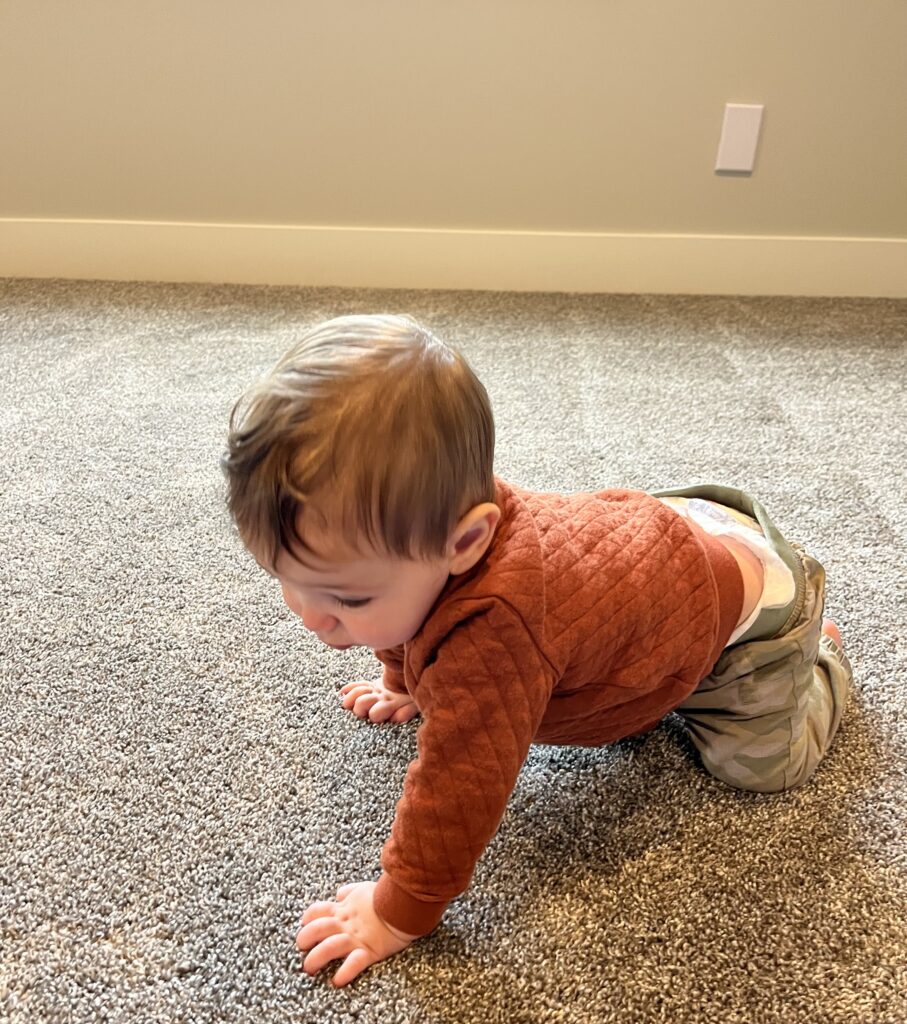
Crawling typically occurs between 7–10 months, but it may begin earlier or later depending on your baby. At 8 months, chances are good that your baby has started crawling, one way or another. They may not have the best form, and there may be some face-plants along the way, but practice makes perfect! Be sure to give your baby plenty of opportunities to crawl, with lots of playtime taking place on the floor. If your baby isn’t crawling yet, don’t worry! Be on the lookout for signs they may be ready to start. These include getting on all fours and rocking back and forth or pulling themselves forward with their arms while lying on their tummy.
Along with crawling, your baby may also be starting to climb stairs. They may only make it up a couple steps before becoming tired or frustrated, and they will likely need some assistance. Stay directly behind them and ready your hands to catch them if they fall.
Once your baby tries to climb stairs, it’s time to get a baby gate for the bottom of your staircase to prevent them from doing so without your direct supervision.
Why is crawling no longer a milestone according to the CDC?
The Center for Disease Control used to list crawling as a milestone on their milestones checklist. However, recently the CDC determined that there was a lack of long-term research behind the effects of skipping crawling, so it was removed.
While crawling may not be considered a necessary milestone according to the CDC, it is certainly still an important developmental step for many babies. Crawling is a complex skill requiring the coordination of muscles throughout the entire body, the use of both sides of the brain, sensory exploration, and several reflexes.
Granted, some babies may skip crawling without further developmental issues. However, skipping crawling may indicate other problems and should at the very least be mentioned to your pediatrician.
Motor Control/Strength
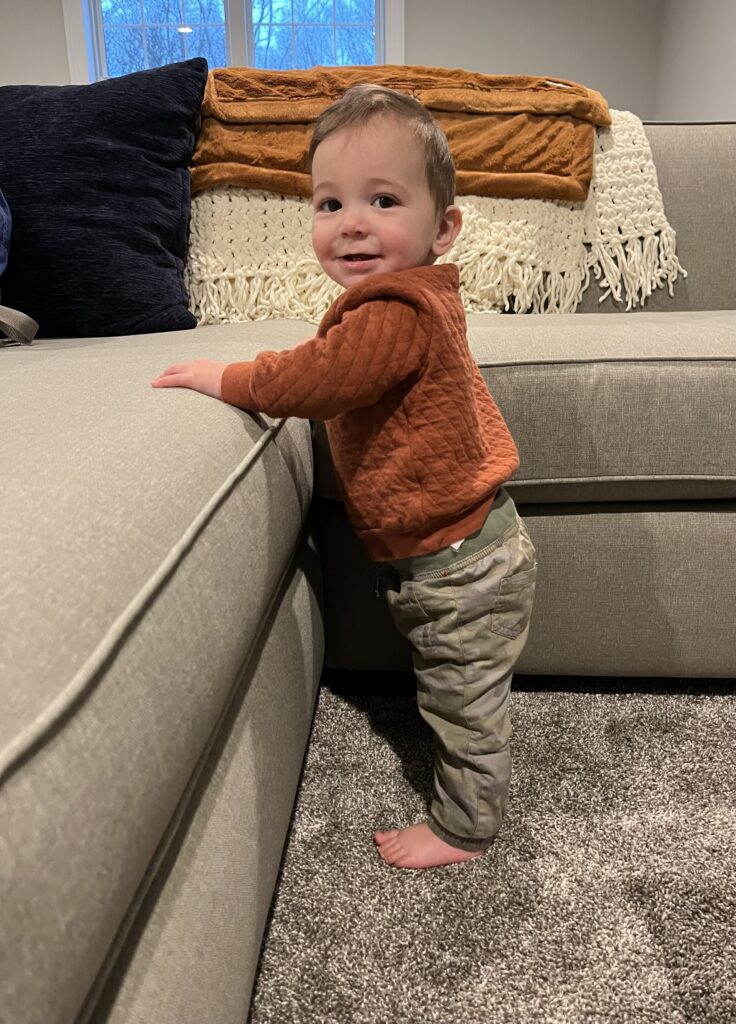
At 8 months, your baby may be pulling themselves up to stand by the couch, steps, coffee tables, chairs, and even you! This is a big step developmentally and tells you that their first steps aren’t as distant as you may have thought. Before you know it, your baby will be cruising alongside the furniture if they aren’t doing so already.
Along with these gross motor milestones, you should also be seeing some fine motor skills emerge as well. We have discussed the pincer grasp in previous guides, a skill your baby will improve upon over the next few months. Bilateral coordination, or using both hands to do something, is another skill that will continue to develop as they eat, play, and hold their bottle to feed themselves.
Cognition/Socialization
A typical 8-month-old baby tries to communicate with their parent in a variety of ways! Some attempts may be very noisy, such as crying or squeaking (Jack’s personal favorite!) Your baby may also start stringing their syllables together in utterances such as “Mama,” “Dada,” “baba,” or “gaga.”
At this age, your baby is starting to understand something called object permanence. This is the awareness that even when an item isn’t visible, it still exists. For example, they are learning that when you place an item under a blanket or behind you, it is still there. Gone are the days of “out of sight, out of mind!” With this skill comes exciting new games to play with your baby, such as peek-a-boo or hide and seek! Check out the 8-month activity guide for a fun game to play while incorporating this skill!
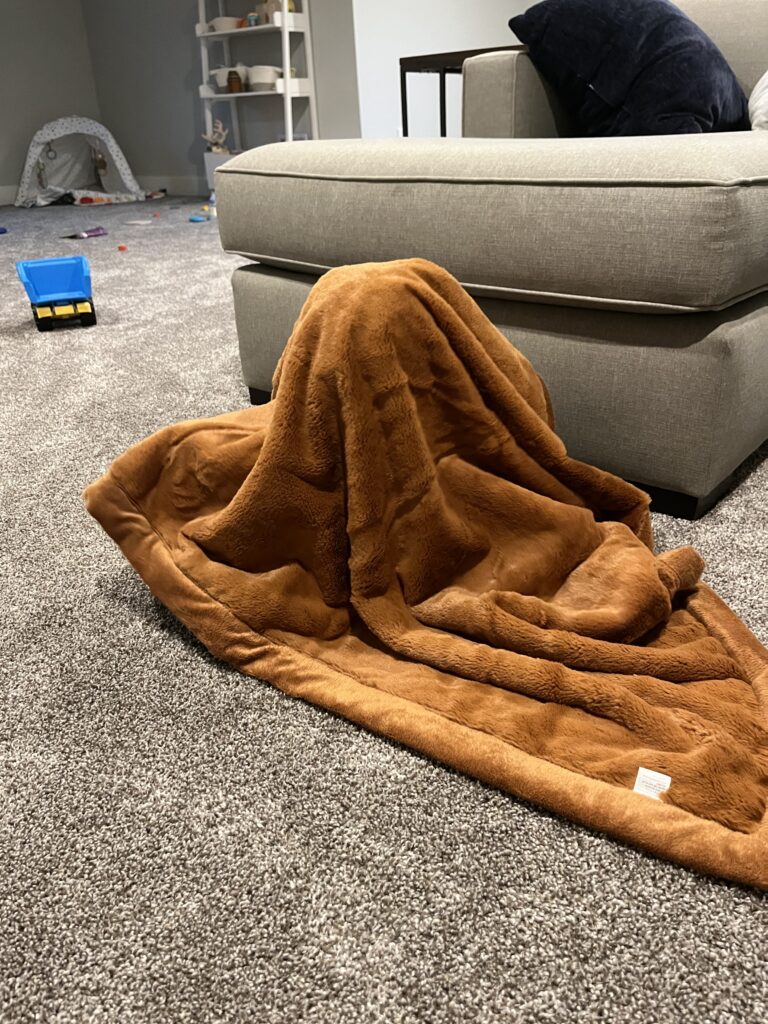
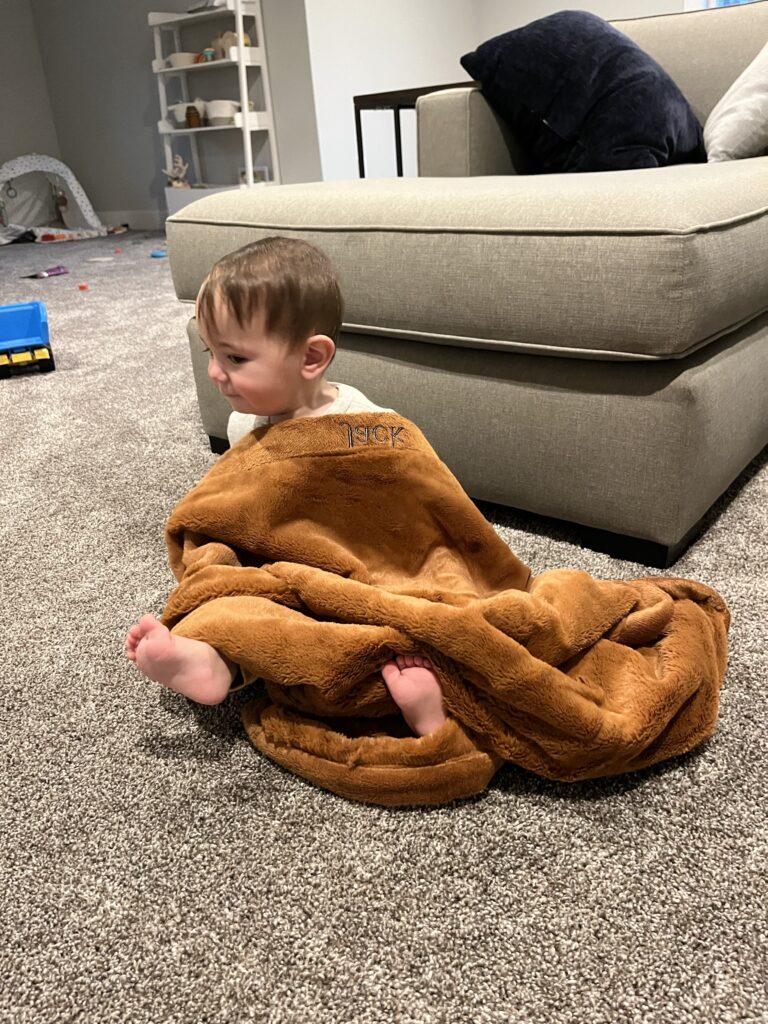
As mentioned in the previous 7-month developmental milestone report, independent play will become more prevalent as your baby ages. You can expect an 8-month-old baby to be able to entertain themselves for 5-7 minutes.
My baby won’t engage in independent play. Are there ways to encourage it?
Yes! But first make sure you are playing with your baby or engaging them in other activities throughout the day. Your baby may be more willing to play on their own if they don’t have to do it all day. Another way to encourage independent play is to provide your baby plenty of toys and books (or other safe household objects, such as boxes, pots and pans, etc.). Changing up their environment can also help spark their independent playtime, as well as supplying different toys in different environments. For example, if you are wanting to cook dinner while your baby plays nearby, have them choose from toys other than the ones they usually have in their nursery or playroom. New toys and environments are exciting and can help capture their attention for longer.
If these suggestions don’t seem to be working, that is okay! There are benefits to independent play, but forcing it won’t do your baby any good. They will play on their own when they are ready!
8-month-old Developmental Milestones: Conclusion
Your baby has accomplished a lot in only a few months, from learning to sit and grasp to starting to crawl and stand. They not only recognize faces, but they are learning how to communicate and understand the world around them. Always remember to celebrate the milestones your baby has already achieved as you prepare them to reach the next!

